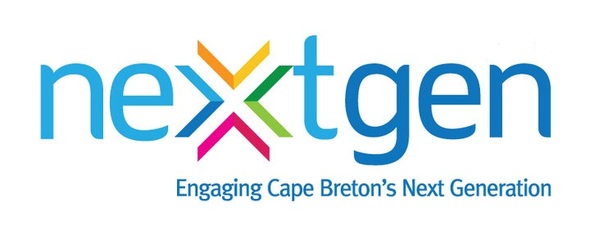 For Stephen Manley, technology is not only a much- loved career, but also a passion of his. As an Industrial Technology Advisor with the National Research Council of Canada and the Industrial Research Assistance Program, Manley is a self-starting, problem solver. In his position, which he calls his dream job; Manley plays a pivotal role in assisting start-up companies to further their businesses. It is not, “just writing cheques for funding,” says Manley; rather he is always seeking to optimize successful outcomes and he becomes incredibly involved with the projects taken on by the National Research Council. Growing up in North-side East Bay, Manley admired the beauty of Cape Breton and was an avid visitor at Ski Ben Eoin. Post-secondary education drew him away from the island, but with the conviction that he would someday return, Stephen freely explored the world as an engineer. A risk- taker in nature, Manley feels that his work with the National Research Council is a perfect fit. His role allows him to take part in the experimental and developmental stages of new entrepreneurial businesses. “I help others take risks with their new business ideas,” Manley explains. His position also enables him to be in the easy living atmosphere of Cape Breton. In his line of work, intelligence in technology is crucial, but so is the ability to engage with potential partners, foster relationships and communicate fully with aspiring entrepreneurs. Manley is a firm believer that small businesses start-ups in Cape Breton could keep young people here; making Cape Breton home needs to be at the top of the list. Manley feels that employment is what you make it, adding, “the only truly sustainable job is one that you create yourself.” Since starting his position with the National Research Council in April, Manley has been enjoyed an array of opportunities, including providing funding for new projects, advising and consulting potential clients, as well as networking and connecting related firms and youth employment programs. From personal experience, Manley advises, “you don’t have to be in a big city to create great things. In Cape Breton we need to be more entrepreneurial in our nature.” For more information about starting your own business and for other opportunities, please contact the National Research Council at (902) 270 3549. *Originally published in the NextGen Connect.
0 Comments
 Raised by local restaurateurs, Alex Morrison was immersed in the hospitality industry from an early age. Working in her family’s restaurant and interacting with customers was something that Morrison looked forward to with every shift, so when it came time to decide what type of career she wanted to pursue, the answer was really quite simple. Following her passion for the hospitality industry, Morrison enrolled in the Business Administration program at NSCC Marconi Campus. Of the decision she says, “taking Business Administration felt like the first natural step in pursuing this type of career.” After completing her courses Morrison chose Membertou Trade and Convention Centre to fulfill the program’s work placement requirement. Two and a half years later, Morrison remains with the Trade and Convention Centre in the role of Sales Associate. Her responsibilities include organizing and executing all of the weddings, galas, day-to-day business meetings and other events hosted at the Convention Centre. Experience is an asset that employers look for when hiring an event coordinator. Only 19 years old on the day she graduated from the Business Administration program, Morrison lacked the experience of established industry professionals, but she did have a solid foundation in education, an incredible drive and a desire showcase her abilities; “I had the opportunity to prove myself and my work ethic during my five week work term before the interview process for the Sales Associate position even began,” explained Morrison. She made an impression with management and was offered the role of Sales Associate at the age of 19. Morrison believes that more entry level positions with a livable rate pay need to be created for young people looking for careers in Cape Breton. She feels that on one hand, youth need to pay their dues and work their way up the ladder, but on the other, they also need to be given more credit for their capabilities and desire to learn. “We have to invest in the community for it to flourish,” noted Morrison. Membertou Trade and Convention Centre provide their employees with opportunities to get ahead. With 85% of the centre’s employees under the age of 40, there is plenty of room for growth for anyone looking to further themselves within the organization. Working at Membertou Trade and Convention Centre has been a dream come true for Morrison and she has found the recent flurry of activity in the community to be fulfilling. In only a few short months the community of Membertou has celebrated the Grand Openings of the Hampton Inn, the Membertou Heritage Centre, not to mention the regular high-paced season for weddings and conferences. Despite the work load, the environment she works in and the people she interacts with each day keep Morrison smiling. Moving forward, Morrison would like to take on more responsibility at the Centre, but presently her focus is on her education and personal milestones. Her immediate goals include obtaining a Bachelor’s Degree in Business Administration from Mount Saint Vincent University and putting the finishing touches on the new house she and her fiancé are building. To book your event at Membertou Trade and Convention Centre, call Alex Morrison at (902) 562-6826.  Kimberley Fraser, originally from Sydney Mines, has used her small-town roots as inspiration for becoming a world-class fiddle player and a highly-celebrated and sought-after music teacher. Motivated to play at the level of some of the Maritimes’ greatest musicians, Fraser found muses in a host of popular Cape Breton musicians such as Buddy and Natalie MacMaster, the Rankin Family and the Barra MacNeils. Surrounding herself with local talent from an early age encouraged Fraser to pursue her dreams of becoming a musician, “as a teenager I had many opportunities to get out there and play. During the summer months you could find me playing at the Marine Atlantic Ferry Terminal in North Sydney, as well as local festivals and concerts around Cape Breton,” reflects Fraser. After graduating high school, Fraser enrolled at Cape Breton University with the original intent of pursuing the safer route of becoming a teacher rather than following her dreams of becoming a professional musician. Once her post-secodary studies commenced, Fraser missed playing too much to make the full-time commitment to an education degree. Instead, she transferred her credits to St. Francis Xavier University, where she graduated from the music program and in 2007, continued her studies at Boston’s Berklee College of Music. Fraser has been exposed to new and extraordinary opportunities that she never imagined were possible. Some of these experiences include playing with some of the world's finest string players, and traveling to unique locations to share Celtic music with people and cultures all over the world. Fraser has had the opportunity to play major Celtic festivals such as the TØnder Festival in Denmark and the Celtic Connections Festival in Glasgow Scotland, both of which she considers a highlights of her career, but there is one trip in particular that stands out above the rest: “getting the opportunity to go to Afghanistan and play for the troops was simply amazing. I was so honoured to be there and it was definitely something to remember,” recalls Fraser. Like any other job, being a full-time musician has its challenges. Sometimes securing enough work to achieve stability within the profession can be difficult. The inconsistency in performances is what led to Fraser’s newest venture, which ties in with her original plans of becoming a teacher. Through her website, KimberleyFraser.com, Fraser started an online teaching forum where both fiddle and piano players, ranging from beginner to advanced levels, could subscribe to her prerecorded video lessons. Launched only a year and a half ago, Fraser’s online tutorials have already taken off. “The online aspect of my business has provided a more reliable income and has allowed me to find that balance between performing and teaching,” says Fraser. “I always knew I wanted to be a musician and being able to use my knowledge and skills to teach others is something that I really enjoy and I am glad I have the opportunity to share Cape Breton fiddle music with people all over the world.” Fans of Fraser’s music can expect a new album within the next few years. New additions to her teaching website will be made regularly, with continued updates to tutorials and new material for students to learn from and enjoy. For more information about Kimberley Fraser and details of her upcoming events, please visit her website. To register for Kimberley’s online teaching sessions, please visit her online teaching website. Kimberley Fraser’s two albums are: 2000 - Heart behind the Bow 2006 - Falling on New Ground Both albums are available on iTunes and wherever Celtic music is sold. Christopher Grandy knows how maddening the job hunt can be for a recent graduate.
"I'm a little less sane right now," says Grandy, who has been searching every day for four months. "It gets really depressing. I don't even want to look at a resumé for days — but I know I have to." Grandy finished his business administration degree at Cape Breton University in April. Bolstered with a diploma in marketing from Newfoundland's College of the North Atlantic, he set out with high hopes to try to find a job. Months later, he's much less optimistic. "I'm always wondering in the back of my head if my resumés are even getting read," he says. Grandy's story isn't an unfamiliar one. Hordes of young people are about to head into their first September without school — but without a steady job, too. According to the latest data from Statistics Canada, the unemployment rate for people age 15 to 24 is 14.3 per cent, almost double the 7.3 per cent for the nation as a whole. But management and human resource experts say there's hope — and gave these five tips to help grads find work this September. 1. Don't get discouraged Even if you've been applying for months, it's important not to get down on yourself, says Hugh Gunz, a professor of organizational behaviour at the Rotman School of Management at the University of Toronto. "It's terribly easy to get distressed and discouraged by the whole thing," Gunz said. "We've been in a substantial downturn since 2008," he said. "There just aren't the jobs around and rejection is tough." But there's no better time to start searching in earnest than right now, says Jennifer McCleary, the director of the Centre for Business Career Development at McMaster's DeGroote School of Business in Hamilton, Ont. "It's never too late to start looking for a job, whether you graduated in April or are graduating next April," McCleary said. "It's all about a state of mind, how well you want to prepare and how motivated you are to stay focused on the process." Though youth employment numbers have been gloomy, McCleary says the market is starting to pick up — especially for new grads. "Employers are always looking for engaged, eager new hires," she said. 2. Job seeking is a full-time job According to experts, new graduates already have a full-time job — it's job hunting. "Get up in the morning and have a routine," advises Blair McMurchy, the director of continuing education, placement and promotion at Humber College's School of Media Studies and Information Technology in Toronto. "Get up at six as if you're going to work and start looking — because looking for a job is a full-time job." Though it might be easy to slide into a half-hearted routine, McMurchy says avoid that at all costs. "Don't get up at 10 and stop at two. Put in your eight hours and stay in the rhythm." Then there are resumés. McMurchy says students will often send out four or five a week — a pittance compared to the 20 or so they should be sending. And forget copy and pasting. Each job requires a resumé and cover letter that is individually tailored to each position, he says. 3. Pound that pavement While sending out applications is important, McMurchy also says that graduates have to be even more proactive. "Students have to get out and pound the pavement," he says. "Sixty-five per cent of jobs out there are never advertised." Gunz agrees, adding students have to push beyond faceless job applications. "It's a numbers game," he feels. "For every one job advertised there are hundreds of applicants, so you have to get creative." Students have to find people in the industry they want to break into and make some calls, he says. "Find out more about what they do and make yourself known," Gunz said. "Often people are very happy to talk to you if they think you're interested in their occupation." McCleary says the students she sees that are most successful are those that are willing to step outside their comfort zone and ask for information from people in the industry. "The more people they know, the better off they'll be," she says. "By asking for help and advice, students are demonstrating they're curious and can present themselves professionally. That can generate interest from individuals who want to introduce you to someone who is hiring, even if they aren't." 4. Follow up An interview that doesn't result in a job is still an opportunity, says McMurchy. "Students need to follow up," he said. "Call the employer and politely ask what it is you were lacking — so that if you upgraded your skills, you'd be the person they hire next time." "Employers like to see someone that doesn't give up, as long as you're professional and courteous." That kind of call can be daunting for many new graduates. But you need to make it, McMurchy says. "Be the graduate that keeps falling down, but learns from his mistake every time. Then you'll be successful." 5. Use all resources Students pay thousands of dollars for an education, so they should try to squeeze every penny out of it — including using the resource centre after they've graduated, Gunz advises. "Talk to somebody professionally qualified who can help you with your approach — because maybe your approach is wrong," he offers. "It could be you're beating your head off a brick wall and you're not realizing it." Most schools continue to give support to students a year or two after they've graduated. "So make use of it," Gunz says. "Get somebody who knows what they're talking about to look at your resumé and look at the cover letters you're writing." McMurchy also heralded the virtues of continung education courses if students can afford them. "You have to be life-long learners," he says. "When you leave school, you can't stop learning." "So when you go to an interview and they ask what you've been doing, you can tell them you've been upgrading your skills, as opposed to 'I've been sitting around.'" To view the article on CBC News website, click HERE. Whether you recently finished your first year of university or graduated this past spring, at some point or another you will be getting work experience in your field of choice via an internship program or summer work experience. Internships are the entry-point to your career and give you skills that translate to your future educational and professional endeavors.
Being an intern is all about learning and for some, this means doing things you may never have dreamed of – but remember, nothing is beneath you. Even if that’s not what you went to school for- even menial tasks are learning experiences. In fact, maybe even ask if you can take some time to shadow another department, you will be surprised at what you can relate to your education. When assigned a task or task list, let it absorb before jumping right in. This will let you digest your task and you will start to have questions. Asking questions is fine, your manager will understand – everyone started somewhere and most as interns. And sometimes busy managers forget what they didn’t know as new employees. It’s no secret that Cape Breton struggles with retaining young professionals for a variety of reasons. Some of the main challenges that youth express are:
· Cape Breton County – 46.6 · Inverness – 47.3 · Victoria - 47.9 · Richmond – 49.6. Despite this, there is a lot of positive news, room for optimism and professional opportunities to be explored. Compared to the same time period in 2011, in 2012, Cape Breton has shown positive growth in employment. The labour force grew by 600 resulting in a 2.9 percent decrease in the local unemployment rate compared to the first five months of 2011. The Cape Breton Partnership has been researching and promoting professional job openings in the region, and recently there have been an increasing number of new opportunities. Demand for health care professionals continues to rise, with a number of job vacancies at the Cape Breton District Health Authority. There is a growing awareness of the number and types of jobs will be vacant in the coming years. NextGen newsletter profiles have highlighted a number of individuals, families and businesses who have relocated or returned to Cape Breton as well as individuals who have continued to do business, work and live in Cape Breton. Recently, the newsletter has also highlighted a variety of potential opportunities for growth and employment in the region that have been announced in the media in recent months. With all this positive energy in mind, what NextGen wants to know: If you met someone who was thinking of moving to Cape Breton to work and live, what is the number one attribute of the region you would promote to sell them on relocating to the Island? (Answer by commenting below). Resources Health Care Career Fair Check out our NextGen newsletter The Cape Breton Partnership is creating an open dialogue about the issues and concerns of Cape Breton's next generation of business and community leaders.
Everything you see on NextGen starts with someone in the Cape Breton community. The posts here are not edited or fact-checked but they will be screened before they post. NextGen's administrators will check out some of the most compelling, important and urgent topics of conversation and, once they're cleared use, make them a part of NextGen's newsletter and stakeholder communications. Together, NextGen and the youth of our community will paint a more complete picture of Cape Breton Island. The Cape Breton Partnership would love for you to join the conversation. Jump in, tell your story and see how it connects with someone in another community on the island. Site administrators will be posting questions and polls to get you started. The Partnership wants to hear your thoughts on what it's like for 16 - 45 year-olds living in Cape Breton. What are some of the good experiences and benefits? What are some of the barriers and challenges you face? Discuss. Please be polite and confine your comments to the subject of the posted topic. Comments will be moderated before posting. Read more about the forum's community guidelines HERE. |
Archives
December 2021
Categories
All
|
nextgencb

